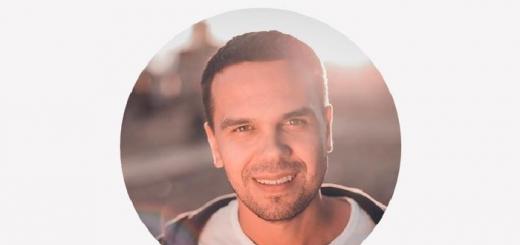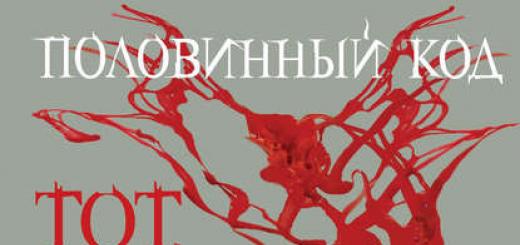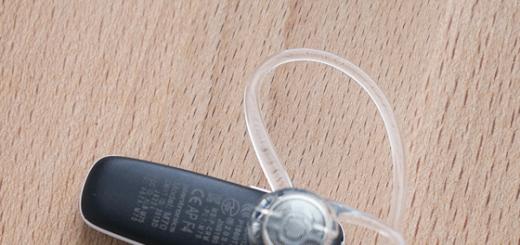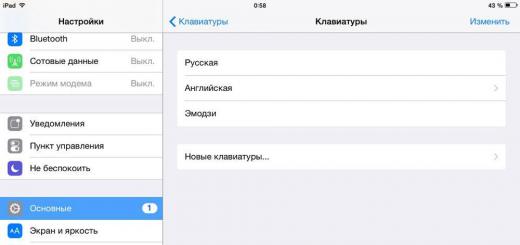In fact, the guys who are taking the Unified State exams, in the future it will be much easier to enter MBA courses. After all, this process is very technological: it is divided into certain steps that need to be clearly passed, each in turn. Alas, modern school does not allow to develop such skills: oral exams and a minimum of tests clearly do not contribute to this. Therefore, carefully consider the process of entering the MBA, because you will not get off with money alone.
The basic requirements for admission to an MBA school are almost the same everywhere:
- Having a diploma of higher education(a bachelor's degree is sufficient) in any field;
- Leadership experience (2-3 years);
- Successful completion of the GMAT and TOEFL test
- Candidate's personality traits
In the latter case, the commission is primarily interested in the motivation and success of the candidate. They will watch how you sell yourself to them in the admission process, and your duty is to do it as talentedly as possible.
Standard List required documents almost everywhere the same. A completed application form (application form), transcripts (a translated and notarized copy of your diploma, in addition, a certified list of subjects listened to at the university, taking into account the number of hours and marks received), essay - yours paperwork, GMAT and TOEFL English proficiency test results, a receipt for payment of the application fee, which is non-refundable in case of failure in admission, and references from the workplace.
The higher the school is ranked, the higher the requirements for future MBA students. A "passing" score on the GMAT test is considered to be an indicator of 600 points, and on TOEFL - starting from 200 points and above (600 points on the old scale). To enter the most prestigious business schools, you should score at least 680 GMAT points (Wharton School, Harvard, Kellogg, University of Chicago, INSEAD Sloan School of Management). To enter Stanford, the score must be even higher - from 720 or more. The most decisive value for enrolling in a prestigious business school is an essay.
 Usually, several letters of recommendation are required for admission, which can be written by teachers, employers or people who can characterize your professional, intellectual, and communication skills necessary for work in leadership positions.
Usually, several letters of recommendation are required for admission, which can be written by teachers, employers or people who can characterize your professional, intellectual, and communication skills necessary for work in leadership positions.
In your summary, draw yourself the way you would like to see yourself, even if this portrait is slightly embellished. You are successful, striving for leadership and new heights, confident in yourself, and every line of your essays not only speaks about it, but screams about it.
Documents are the first step to go through. The second stage is an essay, and the third stage is an interview in the commission. All steps are equally important to your ultimate success.
In the process of preparation, be guided by the level of the school in which you would like to enter. Each has its own requirements for necessary knowledge, the so-called "pass point". And the higher they are, the higher the probability of failure will be. Abroad, there are 4 main levels of prestige, in each of which the probability of failure decreases in accordance with the serial number of the group.
So prestige level 1 is "H/S/W": Harvard, Stanford, Wharton.
Prestige level 2 is "Magic 7", that is, the "magic seven": Harvard, Wharton, Stanford, Columbia, Kellogg, Sloan, Chicago.
Prestige level 3 - "Top 10", that is, the "top ten": Harvard, Wharton, Stanford, Columbia, Kellogg, Sloan, Chicago, Michigan, Fuqua, Tuck.
Finally, prestige level 4 is the "Second tier", the "second tier", schools that rank from 11th to 20th.
Pay attention to the level of the school you have chosen and the knowledge required in it. However, if in some respects you are a little short of the ideal, you can take a chance, but only if in other respects you are beyond praise. Otherwise, it is better to reconsider priorities.
Keep in mind that it is not always necessary to have professional experience to enter American business schools (this is undoubtedly very convenient for university graduates), as even without work experience they are accepted there. Classical business schools in Great Britain and Europe, on the contrary, consider having at least 3-5 years of work experience as a prerequisite, while the age of applicants must be over 25 years old. In ordinary higher education institutions in Europe and America, the conditions are not so tough.
Author: Valentina
Publication date: 09/16/2010
Date of update: 06.11.2012
Reprinted only with the written consent of the editors. Any recorded fact of illegal reprinting of any of our articles (both in part and in full) in personal blogs, live magazines, websites, in the press, in abstracts will be monitored and will entail an appeal for legal support!
The MBA program accepts specialists with higher professional education and experience practical work at least 3 years. Motivation for further professional growth and positive thinking are also important to us!
Duration of training - 22 months. For managers with an economic or managerial education, as well as graduates of the Presidential Program, it is possible to study in a reduced format - 19 months.
In order to form study groups, all applicants are invited to pass an entrance test in the form of an essay (mandatory) and an interview (optional).
Subject to successful completion of the entrance test and the provision of all necessary documents, an agreement for training under the MBA program is concluded with the applicant. After paying for the first stage of training, the applicant is enrolled in the largest and most famous business school in Russia, MIRBIS, and becomes its student.
List of documents required for admission
First of all:
- Questionnaire, application, essay: download (.doc format)
Other documents:
- Identity document (please have it with you when concluding a training contract).
- Diploma of the state sample of higher education and an application to it. The application must indicate the total number of hours for each discipline. If the number of hours is not indicated, then you need to contact the university you graduated from with a request.
- Diploma of professional retraining under the Presidential program and its supplement (if any).
- A copy of the work book, certified by the personnel department of the organization, or a certificate from the place of work.
- Photos - 4 pcs. size 3x4 cm.
- Photo in electronic format (for admission).
How to apply (contacts of the admission committee)
- (option 1) Click on "Sign up" opposite .
- (option 2) Send the completed application form, prepared essay, as well as a copy of the work book to the address with the accompanying text: "I, full name, plan to enter the MBA program from ____ (date, month). I send this letter for consideration application form, essay (download) and a copy of the work book. Number, signature, contacts".
Payment Options
One-time and staged (by semesters) forms of tuition payment are possible. The first payment must be made prior to the commencement of the MBA program.
Discount system*
For individuals
|
Size |
|
|
Applicants with minor children |
|
|
Applicants who pay 100% of the tuition fee at a time |
|
|
Incoming from the regions of the Russian Federation (except Moscow and the Moscow region), as well as from the CIS countries |
|
|
To family members of students, listeners and applicants |
|
|
Graduates of the MIRBIS Institute who have completed their studies in advanced training programs |
|
|
Graduates of the MIRBIS Institute who completed professional retraining programs |
|
|
Graduates of the MIRBIS Institute who completed their studies in higher education programs |
|
|
Graduates of the Presidential Program of the MIRBIS Institute |
|
|
Graduates of the Presidential Program of other educational organizations |
|
|
To the winners and finalists of the management competition "Leaders of Russia" |
10% (MBA) |
For legal entities:
|
Size |
|
|
Legal entities sending to study at the MIRBIS Institute from 3 employees |
from 3 to 5 employees - 5% |
|
Legal entities that paid at the same time |
|
|
Legal entities that send individuals from the regions of the Russian Federation (except Moscow and the Moscow region), as well as CIS countries to study at the MIRBIS Institute |
Mikhail Petrov
graduate of the two-year full-time MBA program at the Kellogg School of Management, Northwestern University in Evanston
“I decided to apply for an MBA in the summer. I passed the GMAT, TOEFL, wrote an essay, went to an interview and entered the Kellogg School of Management, Northwestern University, where I am currently studying in a two-year full-time MBA program. The choice was justified by the excellent reviews about the program from friends who studied there, the results of the employment of graduates and the reputation of the school both in the United States and around the world. Like most schools, Kellogg gives grants to candidates whose profiles they like. The amount of these scholarships varies from case to case. I was lucky and received a scholarship that covered about a third of my tuition fees.
For admission, you had to pass GMAT tests and TOEFL. Schools usually don't have a minimum required result, but on numerous MBA sites, you can find the average results of applicants and, accordingly, set yourself a goal. Exams, especially the GMAT, usually require a lot of preparation, whether you're a mathematician or a linguist, so give it enough time and effort. I started preparing for the GMAT in July-August, my exam was scheduled for November 4th. I advise you to book a date in advance, as there may be no free places left. My profile was not the most suitable for an easy and relaxed exam: I am a lawyer, I graduated from a humanitarian class at school with a bias in philology. So I decided to enroll in a course that consisted of in-class sessions and an online classroom. The classes turned out to be quite meaningless and amounted to reading aloud from a textbook, but perhaps there are better courses elsewhere. The online classroom was useful and provided many opportunities for preparing for individual topics. In my case independent work brought much more benefits than classroom activities. From my experience, I recommend reading the Manhattan GMAT books, be sure to order the Official Guide (the official collection of problems), take practice tests wherever you can. There are also recommendations for preparation on the official GMAT website, and most importantly, pay attention to the GMAT Club forum. Without exaggeration, I did not see anything more useful during the preparation. Probably, the main quality necessary for the successful passing of the GMAT test is stress resistance and endurance. I prepared for a couple of months in a relatively intense mode: a couple of hours on weekdays after work I solved problems and marked areas where I experienced problems, on Sundays I solved full tests. I do not advise you to waste time on solving complex problems, you most likely will not need these skills. It is better to pay attention to the tasks of the middle level and preparation for all topics.
I prepared for TOEFL on my own for two weeks. After the GMAT, where the tasks are an order of magnitude more difficult, Reading is not difficult (so I recommend taking it in that order), and for Listening, Writing and Speaking, you just need to practice with examples. In Writing, you need to have a clear plan for answering a question, it is better to practice writing an essay in advance according to the scheme. In Speaking, it is important not to get confused and mumble, thinking about what to say next. For preparation, I recommend watching video tutorials like those on the GMAT Club and on YouTube. It is also useful to buy an official textbook, where there is a description of the examples and a disk with a simulation of the exam. The main thing is not to complicate: no one will look at how refined grammatical constructions you express yourself and whether your answers to questions are rich in comparisons. I answered as simply as possible, in the end I scored enough points. And yet, if possible, practice Listening in a noisy place when someone is talking nearby: everyone starts the exam at different times, and just when I started Listening in fairly quiet headphones, my neighbor began to take Speaking very loudly. I got distracted a lot and lost a couple of points as a result.
In addition to exams, it was necessary to receive recommendations and write an essay. It usually takes two or three recommendations from a boss and a colleague (in Kellogg - 2). Keep in mind that it is unlikely that you will be able to write one recommendation and send it to different schools, as usually the person who recommends will receive a letter with a questionnaire that is different for each school. The number of essays is different in each school, and the topics change every year and are published in late summer and early autumn. Kellogg had three themes in 2013. They usually revolve around “tell us about yourself”, “why MBA”, “why this school”, “what do you want to do next” with variations. On specialized sites such as the GMAT Club or Poets and Quants, you can find many companies offering help in preparing an essay for a lot of money. If you have English-speaking or good English-speaking friends, then I would advise you to write everything yourself, and then ask them to look at the subject of the language. To understand what MBA essays are, look at books like Best Harvard essays or Admission guides, they give a pretty good picture.
After all the documents are submitted, the painful process of waiting for an invitation to an interview begins. Most schools have a fixed date when they are sent out. Kellogg has no fixed dates, they interview up to 75% of candidates. This is due to the fact that the fit of a candidate is important for the school, and it is difficult to evaluate it without personal communication. I received an invitation almost a week after submitting the documents. Before any interview, it is better to re-read your resume, look latest news, try to understand what kind of person will be interviewing you, and also look at interview reports at the corresponding school on Clear Admit. I interviewed in Paris with a Kellogg alumnus. It was a pleasant conversation about my background, career, my company's strategy, leadership and teamwork, choosing Kellogg. Basically, all the questions were about the same as in the list on Poets and Quants. In addition to knowing your resume and career goals, you need to be prepared to ask questions about the school that demonstrate what you want to go to, and not answer “no questions, everything is clear, I just want to be in the top 5.” Despite the fact that a French woman spoke to me at Kellogg, the interview is conducted in English, including to assess the level of language proficiency. At Kellogg, like at many American schools, blind interviews are conducted, that is, apart from information from my short resume, the interviewer does not know anything about me in advance. The interview lasted an hour and a half, I was warned that time was limited, since all candidates should have equal opportunities.
“The moment that is better to clarify right away is your plans after the end of the MBA”
Maxim Ulyanov
Graduate of the one-year MBA program at CASS business school in London
School visits and communication with students are very important sources of information for making a final decision. Ratings and information on the site are more about how the school positions itself, and not what it really is. In my case, it was the information and feelings received during the visits to the schools that determined the final pair of schools to which I applied. Another option is to attend school presentations that are held in Moscow. Most educational institutions there is a schedule of similar presentations in different cities of the world. The only point is that this is mostly a presentation of the school, and even the students who are brought to these events speak in stereotyped phrases from brochures, so it is difficult to get an objective picture. Another point that is better to clarify for yourself right away is your plans after graduating from the MBA. Do you plan to stay to work in this country, or are you going to return back. In some schools, priority is given to the academic component, in some - to issues of subsequent employment. Do not believe the official reports of schools, since these data do not reflect the real picture, it is better to talk with students.
The set of documents for admission for the top 50 schools is almost identical: GMAT or GRE, IELTS or TOEFL test results, resumes, letters of recommendation, a copy of a higher education diploma. One of the differences is that some schools require an essay on given topics, some require a personal statement. Since I applied to two schools (London Business School and CASS Business School), I faced both cases.

The option of writing an essay has its pros and cons: the plus is that it clearly poses questions or topics with a given word limit, the minus is a larger volume. A personal statement is a rather abstract document, but, in fact, it is necessary to describe everything in it. With a limit of 1,000-1,500 words, you need to decide for yourself what to write about and what not, how many words to allocate. Despite its apparent simplicity, it is quite difficult.
A high GMAT score is one of the main elements of success. No matter how impressive your resume or letters of recommendation are, no matter how amazing the essay is, a low GMAT score can ruin everything. Every year there are stories on the net of miraculous admission to Harvard or other top schools of students with a score of less than 500. I bow my head to the admissions committees who scout out outstanding candidates from thousands of applications. According to stories, some schools first screen out applications that do not pass the minimum requirements for GMAT or IELTS, that is, if the school has a minimum requirement of 500 points, and you score 480, then your application may not even fall into the hands of a person who can evaluate an essay, resume and characteristics. I was preparing for the exam in specialized courses. It seems to me that preparing for the exam on your own, even with official aids, is much more difficult and longer. When passing the exam, timing is very important, so sometimes there is no time to fully solve the task. The courses also show many useful "tricks" with which you can give the correct answer by elimination or in other ways. This applies to both mathematical and verbal parts. The mathematical part of the exam is at the level of knowledge of grades 9-11 of the school, but you need to get used to the format of questions and tasks. The verbal part requires knowledge of English at a high level - it is she who is the most problematic for students from outside English speaking countries. For most top schools, the minimum passing score is 600 out of 800 points.
Preparing for IELTS is in many ways easier than preparing for the GMAT, but it's also better done in a course. The exam also has its own format, which you need to get used to. Without knowing the format and requirements, even candidates with a high level of language proficiency can get a low score. For most top schools, the minimum passing score is seven out of nine. The requirements for a resume are quite standard - you can take an abbreviated version from LinkedIn as a form. The main task on one or two pages is to show your career achievements, resolution experience problem situations, teamwork skills, and it is also desirable to indicate some achievements or hobbies outside of work.
In most cases, two letters of recommendation are required, preferably both from work. Sometimes it is allowed that one was from a teacher from the institute, but you need to think about how to justify this: admission to the MBA implies three to five years of work experience, so the recommendation from the teacher may be outdated. I presented one recommendation from my manager, another from the CFO of the company, a client with whom we interacted on several projects. Recommendations are submitted in English via an online form. It is advisable to discuss the content of the recommendations with those who will give them so that it is combined with your resume and essay. It will be bad if in an essay you describe yourself as an outstanding leader, and your supervisor says that you are an excellent performer. It is also necessary to translate and notarize a copy of the diploma of higher education. This service is provided by most notaries. When preparing documents, many resort to the services of consultants who help prepare essays, resumes and other documents. From my own experience, I can say that this is a rather useful service - it sometimes allows you to look at yourself from the outside and give a direction of thought, but no one will write an essay for you. This is a completely optional service, and its quality may be questionable. After a year of training, I look with a smile at the resume, which consultants helped me write a year ago.
If your application has been approved, then you will have one or more interviews with members admission committee or school students. This is a very important stage of admission, and you should carefully prepare for it. First, remember what you wrote in the essay and resume. Some of the questions will relate to these documents, and it is better that the information voiced coincides with what is written in the documents, but contains clarifying details. Second, prepare to answer the "standard" questions in the series: "Give an example of a situation where you had to show leadership." As the answer to such questions should be a real situation. Thirdly, no matter how trite it may sound, read the information about the school and the program again. You may be asked why you chose this school or program, or what you know about the school. It will be very frustrating to leave these questions without a proper answer.
Rating MBA programs, compiled by The Financial Times, is one of the most authoritative and widely used, but even it should not be taken as the ultimate truth. The methodology of its compilation raises questions from many. Because this rating is so popular, schools put a lot of effort into improving their rating, which ultimately reduces its objectivity. For example, one of the criteria is the growth of salaries of graduates. Upon admission, each candidate indicates the amount of earnings at the time of admission, then these data are compared with income a few years after graduation from school, and here a field for creativity opens up. There is no single methodology for calculating income - someone includes only a monetary reward in its amount, some add a social package and compensation, which can increase its value by 10-15%. Also, the objectivity of this criterion is reduced by the fact that some schools are sent a large number of employer-sponsored students. This means that upon their return, they will be automatically promoted. In this case, the salary increase is higher than if the graduate is forced to look for work in the market. Another interesting point is the average GMAT score: the higher it is, the more prestigious the program is considered. This explains the fact that 80% of the class can have a score of 550-600 points, and 20% of the remaining places are recruited by Indians who have a consistently high score - above 700. The result is an average value in the region of 630-650. In general, the rating is quite reliable, you just need to keep in mind that in reality there may not be a difference between 35th and 45th position.”
"Peaceful quiet place where people really learn"
Nikolai Novak
graduate of the two-year MBA program at New Mexico State University in Las Cruces
“Since August 2012, my studies began at New Mexico State University, which is located in Las Cruces, New Mexico. I received the Endmund Muskie Scholarship with the support of IREX. I learned about this program through the OSVITA center in Dnepropetrovsk, where I went by chance, got acquainted with the presented programs, learned about deadlines. At that time, I quit one job and took another job. After four years at a Procter & Gamble dealership, I wasn't entirely happy with how my career was progressing. My initial education - an engineer for the optimization of automated production systems - was not enough for me. I understood that without a business education, even if you have business acumen, you still won’t be able to convince people that you can do the job yourself, organize everything from scratch. I noticed several times at work that the MBA label is very important for decision makers. Then I decided that I needed to get a second education and that I was ready for it. I considered different options for leaving Ukraine, and this option came across first.
The organizers themselves distribute candidates by university, I could only choose the program, not the university. I didn’t understand where I was flying at all, but I was determined to move, and the name of the university was not so important to me. Now I can say with confidence that I really like the university, despite the fact that it is not rated, not super famous. It's such a calm, quiet place where people really learn. Here is one of the largest and best engineering departments in the US, very serious training is given in the field of agribusiness. This university cooperates with NASA in the field of engineering and with many large firms and monopolies in the agricultural industry, has impressive connections and serious, accomplished graduates. All these moments are not particularly advertised. I am also very pleased with the level of development of the people I meet here.
The collection of documents was quite a time-consuming moment, in general, the whole preparation - from choosing a program to collecting documents - took me about a year and turned into almost a hobby, to which I devoted all my free time. I was required to submit a letter of motivation explaining the need to study in the USA and the programs that interest me, a notarized translation of the diploma, TOEFL and GMAT test certificates, letters of recommendation from those who could describe my professional activity and educational level. OSVITA also suggested that I apply for another grant - from the US Embassy, which covers the cost of applying to universities.
I prepared for TOEFL for about three months. In principle, my English was at a good level: five years ago I went to the USA under the Work and travel program, where I gained conversational English, at Procter & Gamble 50% of communication was in English. In preparation, I paid more attention to the structure of the test, trying to understand what the questions were aimed at. I studied the types of questions more, how to adapt to them, how to read them. I concentrated more on books that solved the test itself and explained how to apply the Pareto 80/20 principle specifically for these problems.
I had letters of recommendation from the professor with whom I defended my degree, and from the COO of Procter & Gamble, with whom I had a good relationship. The motivation letter is the most important document in the entire application process - I wrote it on the last day: I had to urgently submit documents before the end of the deadline, so I wrote the first thing that came to mind. It was necessary to indicate the priority areas in which I would like to study. It is not so important for universities and the foundation what you write, but how exactly you write it: are you confident in yourself, that you really need it. It's important for them to weed out people who don't quite understand what they want out of life and how what they do in the next two years will help them and their countries over the next five years. If this understanding is not in the head, then it is difficult to write sensible motivational letters. Someone comes to this through constant feedback: they torment all their mentors with requests to suggest what they are good or bad at, in which direction they need to move. After four years of work in an international company that had just bought a plant, I realized that managers make a lot of mistakes. The company entered foreign territory, dictated its own rules, and I saw where the money was spent incorrectly. After leaving the company, I realized that American companies simply do not understand what the Ukrainian market needs, and Ukrainian experts do not know how to explain this to American managers. That is, communication does not work at all, and because of this, money is wasted.
I realized that the main thing is to create around yourself the right environment. A year before I applied for participation in this program, I practically did not spend a single weekend at home, I constantly went to seminars, trainings, conferences on various areas knowledge. Constant networking, constant meeting new people, often participated in conferences as a volunteer. I recognized the need for the environment to always move you forward so that you have role models to look up to. This motivates you to do something so as not to stay in the place where you are now. As it turned out later, this approach helped me a lot in the process of further competitive selection.

The second stage of the program was an interview. It was attended by very significant people who clearly understood what they had achieved and how they could help other people. Among them were an alumnus of the Muskie program, a representative of the US Embassy, a representative of Peace Corps and others. The interview was really interesting. Maybe due to the fact that I communicated with the same type of accomplished people throughout the year, it was easy for me to speak the same language with them. The questions that I was asked were from the “tell me why you need this” series. I have long understood that memorizing standard answers does not give any result in communicating with people if you do not have a clear understanding of what you want. You just need to give free will. I believed that everything would turn out the way it should. At that moment, I was ready to invest in grants and competitions for the next five years - without a break, until everything worked out for me. I was ready to fail an interview or exam, at least 20 times, and try again.
In preparing for the interview, I was helped by one graduate of this program, whom I met through my acquaintances. He said that the organizers need to have an absolutely clear understanding of what exactly you are good at, how this will help Ukraine and the United States. You should have an absolutely clear answer to these two questions. In my situation, the answers were simple - I have a good technical education, enough experience in an international company in a managerial position and drive, I can bring new knowledge and skills from the USA to Ukraine and I can help Ukrainian businesses develop faster and better. Also, people will be able to change their perception of the United States, they will begin to understand that this country can sponsor people they believe in, support young people who can make positive changes in their own country. Very slippery was the question of how I can prove that I will not stay in America. I answered simply - I already had such an opportunity before, but I am not interested in this, since in America I will always be a stranger, and it is important for me to acquire significance. I spoke as I thought. The confidence that I built step by step over the course of the year helped me believe in myself and that I could pass this interview.
It seems to me that the most important thing is to solve the issue of personal comfort zone. Strive to get out of it, to be comfortable outside of comfort. If everything is fine and measured in your life today, then this may be the first indicator of impending problems with self-realization in the next three years. You don't have to stop at what you have achieved. No need to become attached to your native area, established friends, stable work, measured pace. The more discomfort in your life, the more courage and risk, the more interesting life is, the more confident you become.”
“I studied Chinese and decided to continue my studies in China”
Maria Illarionova
graduate of the MBA Taught in English program at the Beijing Institute of Technology in Beijing
“In September 2013, I started my MBA Taught in English studies in Beijing. In addition to my main specialty, political science, I studied Chinese at PFUR and decided to continue my studies in China. However, I thought that studying in English would be the most effective for me. I started choosing universities, comparing their ratings, decided on the most preferred cities and started collecting documents. All universities require a copy of the bachelor's degree certified and translated into English language, but since the submission of documents in most institutes opens in February and ends in early June, I needed a certificate from the university, which stated that at the moment I was still studying and when exactly I would finish my program. It had to be translated into English. Copy of passport and photo is standard. Next, it was necessary to prepare two letters of recommendation, in English or Chinese, on special forms of the university, with a signature and a seal. I had one letter from a teacher in my specialty, and the other from a teacher Chinese. But I wrote the letters myself, they only signed them.
I advise an excellent state resource, which in many ways helped me easily enter Chinese universities - CUCAS. You can choose any city, specialty, language of instruction and university, study the requirements, upload documents, pay the registration fee, and you are enrolled. You can also book a hostel and a meeting at the airport through the website. In a couple of weeks, the university will send you an invitation and a form, with it and the Health Report you can already go to the consulate, where you get a visa, which will need to be extended directly at the university. I managed to get into all four universities I applied to (besides the ones listed above, Beijing Foreign Studies University and the University of International Business and Economics), and two of them got scholarships China is wonderful and open country, it takes only a little effort, go through the paperwork and achieve the goal.
“It is worth considering the school as a potential employer”
Mikhail Sazonov
Graduate of the one-year MBA program in 2013 from the IMD Business School in Lausanne
What admission documents are required to enroll in an MBA?
In various educational institutions, the requirements for those wishing to enroll in MBA programs are different. Most MBA programs require GMAT and TOEFL scores, GPA, work experience, essay writing, letters of recommendation from educational institution and from the last job, pass the interview.
The United States is traditionally considered one of the leading countries in the field of business education, therefore, using the example of this country, we will consider the features of the process of admission to MBA programs.
The system for evaluating submitted applications for participation in the MBA program is rather non-linear. For example, if a student's GMAT test scores are not high, and the GPA of a higher education diploma is in the region of 4.0 on Russian system, this does not mean that the selection committee will not consider your candidacy. The candidate evaluation system is such that the documents submitted by the candidate are considered as a whole, while individual low indicators are not a sufficient condition for rejecting a candidate. Each MBA candidate score is important, but it doesn't always adequately reflect the big picture. The applicant can compensate for low marks in the diploma with significant managerial experience or by providing a certificate of additional professional education.
How are GMAT scores and diploma scores assessed?
GMAT scores and GPA are used to determine an MBA candidate's ability to master the material taught, as well as their academic discipline. In practice, this means that the higher your candidate's score, the higher their chances of admission. In this, according to the selection committees of MBA programs, a high selectivity is expressed in the enrollment of candidates for the program. If the GMAT score is 50 points or more below the stated threshold, the probability of being rejected is extremely high, even with excellent other indicators.
University grades and performance
Grades in the first and last years are usually given more attention than even the average score for the entire period of study. In addition to points, the reputation of the educational institution and the structure of the training program are evaluated. At the same time, grades in subjects not related to your future studies, such as ecology or Russian, have a lesser effect on your chances of enrolling. At the same time, special attention is paid to academic performance in the exact sciences (especially mathematics, statistics, econometrics), economics and finance, and legal subjects.
How important is work experience when applying for an MBA?
Of all the criteria, work experience is the most important when deciding whether to accept a candidate for an MBA program. Insufficient work experience or its absence nullifies the probability of admission of the candidate, even in the case when the other admission documents are at a very high level. The admission committee proceeds from the fact that the lack of real work experience will not allow the candidate to get the maximum benefit from the MBA program.
What work experience is required to apply for an MBA?
For many years, most programs required at least two years of professional experience to be accepted into an MBA. However, in Lately When competition for programs has increased significantly, some business schools require a minimum of three years, while top programs and five years of work experience.
How is work experience assessed?
First of all, the selection committee evaluates the status of the employing company and its reputation. Market leaders, according to the selection committee, usually have highly qualified staff.
The second criterion is the quality content of the work experience. For example, a combination of initial experience as a company specialist with subsequent experience as a manager or starting your own business in an area related to the MBA program, as well as having your own professional or scientific know-how, will be a plus. The selection committee also takes into account the time spent in the same position, in the same company. Frequent job changes do not speak in favor of the applicant, while a series of promotions will be regarded as a positive indicator.
How are the personal qualities of an applicant for an MBA program assessed?
Your personal qualities will also be evaluated precisely through your work experience. The main sources of information about your personality traits will be an essay, a motivation letter, recommendations and an interview. The ability to work in a team, strong interpersonal skills, initiative and positive recommendations will help the selection committee see you as a future top manager.
What services does Global Ambassador provide?
Global Ambassador specialists provide a full range of consulting services for admission to MBA programs around the world, namely:
Selection of options for MBA programs in accordance with the client's request;
Maintaining correspondence with representatives of the business school;
Advice and assistance in writing essays, motivation letters, CVs at the level of native speakers (More...)
MBA diploma
from top business schools
How to enter best business schools of the world for MBA programs?
Why is an MBA degree considered a good investment?
Learn more about business education abroad right now!
1. Why do you need an MBA diploma?
Today, in order to apply for the position of a top manager in an international company, you need to have a considerable amount of knowledge and skills behind you. MBA diploma as well as possible will testify to the presence of those you have. If you have an MBA degree, then not only will your chances of being hired increase significantly, you will also increase your starting salary by 12% unlike your colleagues without an MBA diploma. Therefore, all efforts made to obtain MBA degrees will play into your hands in the near future.
In order to become a student of a business school abroad, you need to work hard. Necessary components of the process of admission to the course of study TOP MBA programs are as follows: competition among the strongest MBA candidates, preparation of all necessary documents: essay, high score for completed GMAT and TOEFL/IELTS tests successfully completed interview. Next, we will talk about everything in more detail.

2. Required certificates
 Special attention should be paid to the package of documents required for admission to a business school. First of all, you must provide your certificate of passing the GMAT test (it is worth noting that for prestigious business schools, the passing score is at least 700 out of 800 maximum).
Special attention should be paid to the package of documents required for admission to a business school. First of all, you must provide your certificate of passing the GMAT test (it is worth noting that for prestigious business schools, the passing score is at least 700 out of 800 maximum).
Also, domestic candidates are required to submit a certificate of passing TOEFL or IELTS tests. In order to decide which tests to pass and what result to expect, we advise you to follow the materials on the website of the business school where you want to study.

3. We prepare documents
Despite the complexity of the admission process, if you believe in yourself and set goals for yourself, nothing is impossible for you. For admission to the business school, the following set of documents is required:
In which you must reveal your skills, which will help distinguish you from the rest of the applicants for the program;
, whose task is to reveal your full potential using life examples;
, certified by a notary and drawn up in accordance with all the rules;
in which you need to show your desire for learning.

For more detailed information about the specifics of preparing the application package, you can register for a free online consultation or meet with an MBA consultant in person.

Register for a free consultation

4. How to become a member of the TOP MBA program?
 Being enrolled in an MBA program at one of the most prestigious business schools in the world is not so easy, and this may require expert advice. Such a consultation will be useful, as it will save your time and nerves. An expert will provide you with all necessary information, will give advice on choosing a school, help you deal with the MBA package, and even conduct a “rehearsal” of your MBA interview. Qualified employees of our company will help you to solve all these problems in the best possible way. The best confirmation of our words can be a recording of a consultation with Irina Shuvalova, one of the best experts in our company.
Being enrolled in an MBA program at one of the most prestigious business schools in the world is not so easy, and this may require expert advice. Such a consultation will be useful, as it will save your time and nerves. An expert will provide you with all necessary information, will give advice on choosing a school, help you deal with the MBA package, and even conduct a “rehearsal” of your MBA interview. Qualified employees of our company will help you to solve all these problems in the best possible way. The best confirmation of our words can be a recording of a consultation with Irina Shuvalova, one of the best experts in our company.












